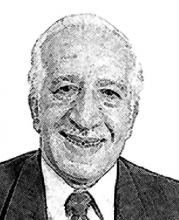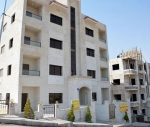You are here
What is Shimon Peres’ legacy?
Oct 01,2016 - Last updated at Oct 01,2016
For Arabs, Peres, who passed away last week, did not leave a legacy as a man of peace.
In the case of the Palestinians, he was the first Israeli official to endorse building settlements in the occupied Palestinian territories.
Being guided by the image of David Ben Gurion, his mentor and father figure, Peres wanted to build a second Israel, just as Ben Gurion built in 1948 the present day Israel.
But the Israel he wanted to build was founded on newly dreamed designs of nuclear arms, which he negotiated with the French government, and Israel succeeded in manufacturing 22 atomic bombs that threaten Arab capitals.
As a strategic thinker, he wrote about a new vision for the Middle East, one that envisioned achieving peace exclusively for Israelis, not the entire region.
He did not hesitate to kill 109 Lebanese civilians in what was called the Qana massacre, on April 18, 1996, when Israeli bombers hit a United Nations centre (UNIFIL) where civilians had taken refuge from Israeli soldiers attacking Lebanon.
Orders to hit the UNIFIL centre were approved by Peres as prime minister in his second seven-month tenure, following the assassination of Yitzhak Rabin.
But even as a young fighter with the Haganah, he took part in killing tens of Palestinians in Ramleh. When he asked Ben Gurion what to do with the Palestinians crowded in the city’s mosque, the answer was not in the shape of words, but a gesture by the hand: away and away.
As the smooth talk of a Polish carpet salesman, he managed to convince the Kennedy administration in Washington to supply Israel with the latest modern weapons.
His special relationship with Robert Kennedy enabled Israel to obtain the latest bombers from the Pentagon’s arsenal.
In his memoirs, he admits that he could not develop an amicable relationship with King Hussein, similar to that which the king forged with Yitzhak Rabin.
King Hussein managed to see through Peres’ attempt to manipulate the Palestinian delegation members during the Oslo negotiations, and how he wanted to alienate them from the special relationship they used to have with Amman.
Peres is partially guilty for the abysmal failure of the Oslo accords, which did not restore peace or prosperity to the occupied territories.
Though he won the Nobel Peace Prize, together with Yitzhak Rabin and Yasser Arafat, he failed to project the image of a true lover of peace between Palestinians and Israelis.
That could explain why the Arab members in the Israeli Knesset, representing 1,600,000 citizens, refused the invitation to attend Shimon Peres funeral, since they consider him instrumental in their persecution and marginalisation.
They consider him a smooth talking man who left a legacy of war, enmity, hatred and usurpation.













